
The Darrell McClain show
Independent media that won't reinforce tribalism. We have one Planet; nobody's leaving, so let’s reason together!! Darrell McClain is a Military veteran with an abnormal interest in politics, economics, religion, philosophy, science, and literature. He's the author of Faith and the Ballot: A Christian's Guide to Voting, Unity, and Witness in Divided Times. Darrell is a certified Counselor. He focuses primarily on relationships, grief, addiction, and PTSD. He was born and raised in Jacksonville, FL, and went to Edward H white High School, where he wrestled under Coach Jermy Smith and The Late Brian Gilbert. He was a team wrestling captain, District champion, and an NHSCA All-American in freestyle Wrestling. He received a wrestling scholarship from Waldorf University in Forest City, Iowa. After a short period, he decided he no longer wanted to cut weight, effectively ending his college wrestling journey. Darrell McClain is an Ordained Pastor under the Universal Life Church and remains in good standing, as well as a Minister with American Marriage Ministries. He's a Believer in The Doctrines of Grace, Also Known as Calvinism. He joined the United States Navy in 2008 and was A Master at Arms (military police officer). He was awarded several medals while on active duty, including an Expeditionary Combat Medal, a Global War on Terror Medal, a National Defense Medal, a Korean Defense Medal, and multiple Navy Achievement Medals. While in the Navy, he also served as the assistant wrestling coach at Robert E. Lee High School. He's a Black Belt in Brazilian Jiu-Jitsu under 6th-degree black belt Gustavo Machado. Darrell Trains At Gustavo Machado Norfolk under the 4th-degree black belt and Former Marine Professor Mark Sausser. He studied psychology at American Military University and criminal justice at ECPI University.
The Darrell McClain show
When Rhetoric Burns: Virginia’s Debate and a Fire That Shouldn’t Exist
One line lit the fuse: leaked texts from a statewide nominee invoked “three people, two bullets,” forcing Virginia’s race into a referendum on responsibility, tone, and what leaders are willing to condemn—and what they’re not. We walk you into the Norfolk clash where Abigail Spanberger stayed steady and Winsome Earle-Sears swung for the knockout, then map how that posture war—calm competency versus disruptive force—plays with early votes already in the bank. From abortion framing to school fights, we pull apart the emotional architecture of persuasion and why most viewers remember gears and grit over policy footnotes.
The story widens with a chilling update on the Pacific Palisades fire. Prosecutors allege a planned arson seeded on New Year’s Day smoldered underground before wind turned it into one of L.A.’s worst disasters. We break down the digital trail—from rideshare logs to AI-generated imagery—that investigators say reveals motive and method, and we draw out what communities can change now: fuel management, early detection tech, interagency alert speed, and red-flag public education that meets people where they are.
Then we head to a fragile ceasefire and a clock that doesn’t stop for speeches. Drones must fall silent, troops must pull back, hostages and detainees must move, and aid must flow. We parse the U.S. role in an international stabilization force, the promises about reconstruction, and the many unanswered questions that could upend “lasting peace.” Finally, we turn the lens on institutions at home—how justice, politics, and media sometimes blur—and why trust depends on disclosure, distance, and consequences that stick.
If this conversation sharpened your lens on power and responsibility, follow the show, share it with a friend, and leave a review telling us which moment changed your mind. Your take might make the next episode.
Our next question is about the temperature and tone of political speech. The first example has been shaping the race for governor and attorney general for the past week. You both will have a chance for rebuttal. Democratic Attorney General nominee Jay Jones admits he sent text messages to a colleague referencing former Republican House Speaker Todd Gilbert. Here's what he wrote.
SPEAKER_00:Jones. Three people, two bullets. Gilbert, Hitler, Pol Pot. Gilbert gets two bullets to the head. Spoiler, put Gilbert in the crew with the two worst people you know, and he receives both bullets every time. Colleague. Jones. L-O-L OK OK. I mean, do I think Todd and Jennifer are evil and that they're breeding little fascists? Yes. Colleague, you were talking about hoping Jennifer Gilbert's children would die. Jones, yes, I've told you this before. Only when people feel pain personally do they move on policy.
SPEAKER_16:Jay Jones has apologized and says he takes full responsibility for those messages. Ms. Spamberger, you have called the comments disgusting and said you condemn violence. The question for you tonight is: were you aware of these messages before they were released publicly? And will you continue to endorse Jay Jones as the next Attorney General of Virginia? You have 60 seconds.
SPEAKER_15:The comments that Jay Jones made are absolutely abhorrent. I denounce them when I learned of them, and I will denounce them every opportunity I get. As a mother, as a public servant, as a candidate for governor, I denounce them. And it is important that candidates always denounce violence on no matter which side of the aisle. Violence, violent rhetoric, we should always be focused and forceful in our denouncement. And importantly, please my opponent unfortunately only denounces violence when her side is the target. Don't highlight that. Into the future, she will endeavor to denounce violent rhetoric and violence no matter who the victim. And tonight, Lieutenant Governor Earl Sears, I will say you routinely referred to me as Earl Sears. Ms. Earl Sears. So as we move forward, we must continue to set a good example for all of our children.
SPEAKER_16:Thank you, Miss Bamberger. I just I didn't hear an answer there on the endorsement issue, so I want to just make sure. Will you continue to endorse Jay Jones to be the next Attorney General of Virginia? And were you aware of these text messages before they released? You have 30 seconds.
SPEAKER_15:You do imagine. It denounces Merlin. Importantly, um, at this point, as we move forward, the voters now have this information, information that was with withheld for them. You're running presumably for permanent affairs reasons. Uh but the voters now have the information, and it is up to voters uh to make an individual choice based on this information.
unknown:Ms.
SPEAKER_16:Member, I understand what you're saying about the voters, but for you yourself, do you still continue to endorse Jay Jones? 15 seconds. Yes or no?
SPEAKER_15:I we are all running our individual races. I believe my opponent has said that about her lieutenant governor nominee. And it is upstairs every person to make their own decision. I am running my race to serve Virginia, and that is what I intend to do.
SPEAKER_16:Thank you, Ms. Spamberger. Uh we just want to clarify, you know, what you're saying is that as of now you still endorse Jay Jones as Attorney General.
SPEAKER_15:I'm saying as of now, it's up to every voter to make their own individual decision. I am running for governor. I am accountable for the words that I say for the acts that I take for the policies that I have put out. Thank you. I am responsible for the policies I put out and the work I will endeavor to do tirelessly for the people Virginia.
SPEAKER_16:Thank you, Miss Spamberger. Miss Earl Sears, before we get to rebuttals, because we will get to rebuttals, we have a question for you. While there is no equivalency, this next example does speak to the divided nature of our country. During the Charlie Kirk memorial, President Trump said, quote, I hate my opponent and I don't want the best for them. Is there a place for that kind of political speech? You have 60 seconds.
SPEAKER_08:Well, I think as everybody knows, I'm a Christian. I'm a Christian before I'm a Republican, and I'm required to forgive people. And it's hard sometimes when somebody has abused you, et cetera, but it's something you must do because not to forgive is almost like as someone said you drink poison thinking that it's going to affect the other person. And I want to live a decent life, and I I don't want to have not have peace in my life. And so I, as I've said before, I would not say that. So that's why I'm wondering why my opponent won't say, beyond its abhorrent and disgusting, why she won't say it is not okay, and that he must leave the race because Jay Jones advocated the murder, Abigail. The murder of a man, a former speaker, as well as his children who were two years, two and five years old. You have little girls. What would it take him pulling the trigger? Is that what would do it? And then you would say he needs to get out of the race, Abigail? You have nothing to say? Abigail. What if he said it about your two children, your three children? Is that when you would say he should get out of the race, Abigail?
SPEAKER_16:You're running to be governor, Miss Earl Sears. I know you're saying that you would not personally say this, but do you think still that there is that place for that kind of rhetoric? The example that we gave, uh even coming from others, you have 30 seconds.
SPEAKER_08:So I'm responsible for my behavior and what I've said, I've just said, I wouldn't say that. I would not speak that way. Look, I'm from a third world country. I was born in Jamaica, and when I was 10 years old, I saw that kind of political violence, which is why I'm asking my opponent to please ask him to get out of the race, have some political courage. What you have done is you are taking political calculations about your future as governor. Well, as governor, you have to make hard choices, and that means telling Jay Jones to leave the race. I have seen what it means when people are sh are are shot in the streets and thrown in the back of cars just for political purposes. I don't want to see that in America. America must never be that place, and Abigail needs to say something.
SPEAKER_12:Ladies and gentlemen, let's get into it. Virginia. And if you thought you were tuning in for Lincoln Douglas, you got something closer to a heavyweight brawl in Norfolk. Now, for those who missed it, here's the scene Abigail Sponberger, Democrat, former Congresswoman, former CIA case officer Walkson leading the polls. She's cool, disciplined, and on paper pretty hard to rattle. On the other side, Winsome Earl Sears, Republican Lieutenant Governor, Marine Veteran, Jamaican immigrant gun rights champion, you name it. Earl Sears is down in the polls, but she came to Norfolk like a woman who understood she had one shot left. And trust me, she fired every round in the chamber. But hanging over this debate like a thundercloud was not Spanberger or Sears, it was Jay Jones, the Democratic nominee for attorney general. His text messages from 2022 leaked, and in them he talked about shooting then House Speaker Todd Gilbert. Let me pause there. Because in a country already drowning in political violence, school shootings, assassination attempts, we have a man running for top prosecutors talking about or threatening shooting a political opponent. That's not locker room talk. That's not boys being boys. That's disqualifying. That's a breach of trust with the people of Virginia. And Spamberger knew she had to answer for it. And she tried. Over and over, she called his words abhorrent. She denounced them as a mother, as a public servant, as a candidate for governor. But when Prestwin asked directly if Jay Jones should step aside, she froze, she hunted. She said, That's up to the voters. Now let me tell you what that really means. She doesn't want to split her party, she doesn't want to alienate her base, and she doesn't want to hand her opponent the soundbite of Spanberger abandons her own attorney general nominee. So she did the politicians shuffle, condemn the act, but refuse the consequence. That was her strategy. Play defense, stay calm, don't give away the crown. But her old sears. She smelled blood. And she went for the jugular. And from the opening moment, she was in Spanberger's face, interrupting her answers, accusing her of lying. At one point, she literally shouted as line number twelve, like she was keeping score on a chalkboard. She even bulldozed into Spanberger's closing remarks, which, in the polite world of debate etiquette, is about as disrespectful as spitting in somebody's sweet tea. She wasn't there to be polite. She was there to make noise. She was there to dominate and say what you will about her approach at work in the sense that nobody watching that debate is going to forget her performance. But here's the thing: what looked like strength to some looked like chaos to others. You see, Spamberger kept her cool. She didn't flinch. She stared straight ahead while Sears was practically breathing fire. And depending on where you sit politically, that either makes Spamurger look presidential, or it either makes Earl Sears look like a fighter or like she's unhinged. Now, let's hit the issues. Because while the Jones scandal hung over everything, the real fireworks were the culture wars, abortion, transgender rights, parents and schools. On abortion, Earl Sears painted Spanberger as an extremist said she supported abortion up to the minute before birth, conjuring that image of a baby on a table. Now, that's not Spamberger's position. She said she supports Roe v. Wade. But the rhetorical trick worked because it framed her as radical in the minds of anyone who doesn't dig deeper. On transgender issues in schools, Spanberger gave a middle-of-the-road answer-leave decisions to parents, teachers, administrators. Earl Sears hit her back with a Yunkin playbook, casting herself as the warrior for protecting our daughters. That's been a winning message for Virginia Republicans before, so you can see why she leaned on it. So again, it wasn't about policy precision, it was about emotional impact. Earl Sears went for the gut. Spanberger stuck with the hit. Now, the moderators, God bless them, they spent half the night trying to keep order. They literally had to interruptions. Ms. Earl Sears, please stop talking over her. It was like babysitting two siblings fighting over the Xbox controller. The whole thing felt less like a debate and more like Thanksgiving dinner after the third glass of wine. But here's the million-dollar question. Does any of this matter? Spamberger is in the polls 51 to 44. That's a comfortable lead in a state that's been trending the glue. And early voting started September 19th. That means a whole lot of Virginians already nailed in their ballots. Which means Earl Sears may have been playing to an audience that already left the theater. But maybe that wasn't the point. Maybe she wasn't trying to win the undecided suburban mom in Fairfax. Maybe she was trying to fire reprobate people who might have stayed home otherwise. Maybe she was trying to say, I'm the fighter. I won't back down. I won't play by the rules of the polite establishment. And in that sense mission, here's where I land on it, Abigail Spanberger acted like a friend. Safe, controlled, defensive. Winston Moral Sears acted like the underdog. Loud, aggressive, risk-taking. And you know what? Both of them were right in their own way. Spanberger's job was to not lose the race. Sears' job was to shake it up. They each played their role. But the voters of Virginia, they've got to decide do they want calm competence or fiery disruption? Do they want something who shrugs off scandal with a steady hand or someone who tries to tear the house down brick by brick? Because that's what this debate really revealed. It wasn't about policy detail. It was about tone. It was about who you want answering the phone at 3 a.m. The unflappable ex CIA officer or the no-nonsense Marine veteran who will yell into the receiver. And let me tell you, this race may already be baked in, but don't underestimate the power of one night like this. Because politics isn't just math. It's mood. And moods can shift. Sometimes all it takes is one fiery performance, one viral clip, one moment that breaks through. But if I'm a betting man, I still say the math favors Baumberger. She came in with the lead, she left with the lead, and Virginia doesn't flip on vibes alone. But the story of last night is that when some Earl Seers refused to go quietly, she threw everything she had into that hour. And even if she doesn't win this election, she's already secured her reputation as someone you don't ignore. So here's a lesson. In politics, sometimes you win by putting the steady hand on the wheel. And sometimes you win by grabbing the wheel and jerking it to the side. Virginia saw both strategies last night. Now, the question is, which one do they trust to drive the bus? We'll find out in November. Until then, buckle up. Because if that debate was any preview, Virginia's politics aren't calming down anytime soon.
SPEAKER_10:Turning now to the Pacific Palisades fire. So obviously devastating fire that happened in January. We covered uh quite a bit of it here. It was horrible. People lost their lives, just billions of dollars in property damage, and so much just about FEMA and just the general response to that and whether people would be able to rebuild. We are now learning uh the Department of Justice is alleging that it was actually an intentional act of arson and one that was deeply planned using apparently chat GPT style images with some evidence that they're able to show you of an Uber driver who allegedly took part in this. Let's take a listen to what they say.
SPEAKER_01:The Palisades fire reported on January 7th was caused by an intentionally set fire near a viewpoint along the Tumesco Ridge Trail into Pegna State Park on January 1st. The fire was a holdover fire, meaning it was deeply seeded in dense vegetation and roots and continued to burn undetected until catastrophic weather ensued, resulting in the Palisades fire.
SPEAKER_10:So this is including the images. Let's put this up here, guys, on the screen. Uh, this is from the acting U.S. attorney. He says, today we are announcing the arrest of 29-year-old Jonathan Rindernecht on a criminal complaint, charging him with maliciously starting what became the Palisades fire in January. The complaint alleges that Rinderknecht started a fire in the Pacific Palisades on New Year's Day, a blaze that eventually turned into one of the most destructive fires in Los Angeles history, causing death and widespread destruction. Among the evidence that was collected from his digital devices was an image that he generated on Chat GPT depicting a burning city. While he cannot undo the damage and destruction that was done, we hope his arrest and the charges against him bring some measure of justice to the victims of this horrible tragedy. His initial appearance is scheduled uh uh uh in the U.S. District Court in Orlando, where apparently he was. So some of the details, D3, please, that we can put and share with all of you, like I said, is working as an Uber driver and was, quote, obsessed with images of fire, uh, is how they characterize it. And so I guess this is like a this is like a thing. They call them firebugs. Pyromaniacs. Yeah, pyromaniacs. They say he's accused of maliciously sparking the brush fire January 1st. The fire was then knocked down by the LA uh LA Fire Department, but obviously continued to smolder before high winds and rekindled it. They said it left 12 people dead, 7,000 homes,$150 billion in property damage. They say he lived in the area at some point, quote, allegedly ignited the flames near a popular hiking trail at about midnight time on New Year's Day, just moments after dropping Uber passengers off nearby. They later said that he, quote, appeared agitated and angry after arriving at the hiking trail. He allegedly filmed the scene on his phone and listened to a rap song by a French artist whose music video features him setting a series of fires. The Google record showed that he was born in France. Apparently, he listened to that song multiple times in the music video, four times leading up to the day of the fire, and it translated the lyrics from that song that something says, like, daily life is killing me. I feel like I'm nowhere, there's too much bitterness in my head. I think about the mistakes that we made. And they say at another point in the music video, it actually shows a bearing bare burning barrel outside of a housing project that eventually becomes a huge inferno. They say he watched his fire burn for a minute before fleeing down the trail, where he made a three-minute video recording of himself attempting to call 911 to report the blaze as he was on the phone to dispatchers. He typed, Are you at fault if a fire is lit because of your cigarettes? into Chat GPT, which was also featured apparently in the screen recording that he was trying to make there. So creating an alibi, I think, where he was like, I'm calling 911, and am I at fault for it because it was a cigarette, like trying to play it off as a cigarette? We're not exactly sure. He then said they drove away from the scene, turned around to follow the responding fire trucks back to the scene, where he watched and recorded videos as the crew battled the inferno. And eventually all of this comes to light now, after I guess prosecutors were able to zero in with the Uber message, with the 911 records, the arson investigation. I mean, it's totally crazy. I mean, killed so many people, caused so much damage. Uh, and I I genuinely was not aware that this was a thing, that there are just freaks out there who like to set fires. And like creating images yesterday. I never even heard of it.
SPEAKER_09:So most arson is not set by pyromaniacs. It's like people who are, you know, looking for insurance funds or for revenge or whatever. But this certainly bears the hallmark of someone who's like obsessed with fire. And there's even people who get like sexual gratification from fire, watching fire. And uh, like I don't know if he is one of those people, but it certainly bears the hallmarks of someone who has like a twisted obsession with fire, listening to this video, uh, this music video, watching it over and over. He was watching other videos about fires, even him like recording himself with the fire in the, you know, in the background and um generating these images on Chat GPT, et cetera. And we also should say, I mean, based listen, we're I'm reading a lot into like the lyrics of the song that talk about oh my god, the game list, et cetera. But you know, it could be kind of like have some similarities to some of the nihilist killings that we've talked about. And people did get killed here, by the way. 12 people were dead as a result of these blaze blazes and thousands of homes destroyed. Um California was, I don't know if you guys remember, like it was horrible. Um, California was a tinder box, and and it wasn't, it was this fire was the largest one. There were others burning as well. Um, you had the Santa Ana winds that were extraordinary, 80 miles per hour that made this thing spread just so rapidly and like crazy. Absolutely sick and horrific thing to have done. And it it really was kind of like a perfect so the vegetation was very dry as well. I mean, it was just like a perfect storm for this to end up being one of the worst and deadliest blazes in California history.
SPEAKER_10:Yeah, that's right. It was it was really awful. We just wanted to make sure we gave everybody an update just because I mean there's nothing really political, I guess, to say about it. We don't know very much uh exactly.
SPEAKER_09:Everybody immediately ran into what's his social media and who's in the New York Post says he was a Biden speaker. He gave he gave$2 to Joe Biden. That's it. Yeah, he gave$2,$1, and then another$1 on another date. That's it.
SPEAKER_10:Well, for full transparency to the audience, I have a parlay bet with our uh producer Mac on whether this gentleman and Mark Sanchez uh both had marijuana involved in the case. So looking forward to the toxicology report on both of those cases. And he does owe me 50 bucks uh if it does come to pass. So we'll see. How do that's putting him in? What do you mean? It'll come out in the criminal case. He said cigarettes there, right? You think it's a real cigarette or a marijuana cigarette? I'm just we'll just wait. We'll wait and see. Uh I'll I'll let you be the uh I will let you be the person who uh looks and can validate the debt. Or the debt.
SPEAKER_09:I'll be the judge.
SPEAKER_10:And for Mark Sanchez, we're calling for a full release of the toxicology report. Yeah. Full, full scale release in order to settle this uh wager between two gentlemen here.
SPEAKER_09:Another thing he came back he did, which um added to the uh him being a suspect, was he came back to watch the fight the blaze also.
SPEAKER_10:So sometimes I just get creeped out that people like this are alive. And I think that is a in our society.
SPEAKER_09:Very natural response.
SPEAKER_10:Hey, if you like that video, hit the like button or leave a comment below. It really helps get the show to more people.
SPEAKER_09:And if you'd like to get the full show, it's ad-free and in your inbox every morning, but you can sign up at breakingpoints.com.
SPEAKER_10:That's right. Get the full show, help support the future of independent media at breakingpoint.com.
SPEAKER_11:So, of course, guys, um, thank the I I I've probably been beating a drum on this point. I d I do not, even though I do consume uh legacy media, I am a big supporter of what is roughly known as independent media. And so I am a supporter of Breaking Points, with the host uh Crystal Sager and uh and uh Crystal Ball. Uh Ryan Grimm as well does Great Roker there, as well as uh Emily, with their um show that they called Counterpoints, which is in the Breaking Points Network. I think they have fair and balanced discussions, very vigorous uh in in their reporting and um not partisan, not tribal. They do the left, right, center. Uh they host um debates uh on different topics where they sit back and play moderators, and sometimes they do topics where they will be debating themselves. And if you have uh at least ten dollars a month, you can get a membership at Breaking Points for$10 a month and get their premium content. And I have been supporting them since they launched uh uh their channel a few years back, and I have not regretted it. So um uh you can uh uh if you can spare the ten dollars a month, uh please, please um support uh breaking points at um at um at Crystal and Sagar. And um that I'll I'll I'll just let the comments on the Palisades thing stay as they are until I come up with a succinct and full monologue about it and more facts come out.
SPEAKER_07:Israeli airstrikes for the first time in Let's President Trump promises a deal he brokered will mean lasting peace. The next 72 hours are key. Why are so many Palestinian skepticals?
SPEAKER_03:I'm Leila Falden, that's A. Martinez, and this is a first from NPR News. President Trump is planning to head to Egypt this weekend, so he'll be there as Israel and Hamas implement the first part of the plan.
SPEAKER_07:It's really peace in the Middle East.
SPEAKER_03:No deal is still fragile, and there are also questions of what's next and why a small group of U.S. troops are part of that equation.
SPEAKER_07:Plus, New York Attorney General James was indicted on bank fraud and false statement charges. Trump has publicly demanded his Attorney General prosecute James and other perceived political foes. Now the Justice Department is doing just that. See what else? We've got all the news you need to start today.
SPEAKER_02:This message comes from Granger. If your job at a healthcare facility includes disinfecting against viruses, you know prevention is the best medicine. And maintaining healthy spaces starts with a healthy cleaning routine. Granger's world-class supply chain helps ensure you have the quality products you need when you need them. From disinfectants and cleaning supplies to personal protective equipment to help deliver a clean bill of health. Call 1 800 Granger, clickGranger.com, or just stop by. Call 1-800 Granger, clickGranger.com, or just stop by. Granger, for the ones who get it done.
SPEAKER_07:For the first time in seven months, people in Gaza woke up with no Israeli airstrikes overhead.
SPEAKER_03:Today is supposed to mark the start of the first phase of what President Trump says will be a strong and lasting peace. It comes after Israel's government approved Trump's plan for a hostage exchange deal.
SPEAKER_07:We're joined by MPR International Correspondent Type Batrawi in Dubai to explain what's happening. So tell us uh what the situation now is in Gaza with a ceasefire.
SPEAKER_04:Well, this morning, a people in Gaza were actually still being fired on by Israeli troops when they tried to walk along a main road leading from the south of Gaza to Gaza City and the north. Hundreds of thousands of people have been displaced in recent weeks from that city. But this is what it also sounded like in the center of Gaza City for the few people who are still there. So what you're hearing there is the sound of an Israeli drone buzzing overhead. And what that means is Hamez has not yet begun retrieving hostages to release them. It won't do that until the drones stop flying. And the drones are supposed to stop when Israel's military completes a withdrawal from deep inside Gaza to a holding line where they would still control about half of the Gaza Strip. Now, it was really defense officials told MPR on condition of anonymity in order to speak about the operations in Gaza, but the army had started to pull back to that agreed upon line in Gaza, and that it would announce today it has completed that initial pullback. But here's the crucial part. The clock starts ticking on this deal from that moment. Hamez has just 72 hours to release the 20 hostages of holes that are believed to still be alive and any bodies in their possession, but there are others they will need more time to find.
SPEAKER_07:Tell us um what you know about the details of the deal that was signed last night.
SPEAKER_04:Well, there is skepticism because the two previous US backed ceasefire deals in which Hamez released hostages were broken, and we saw Israel return to war. But Trump says this deal is about more than Gaza. He says it's about Midi's peace, and he has given his personal guarantees to Egyptian, Turkish, and Kotari mediators and Hamas that the release of all the Israeli hostages the group holds will coincide with an end to the war. Now, I guess I saw a copy of the first page of this deal that was signed in Egypt last night. Mediators and Hamas confirmed to enter the document, which is circulating online, is legit. It refers to this first phase of the deal, which is focused on releasing hostages. But this document says the war will immediately end upon approval by Israel's government, which we know the cabinet did vote on last night and approve, in the presence of White House envoy Steve Whitkov and President Trump Seminar Kushner. But again, this document only lays out details of the first phase of the ceasefire and not what comes next. And that's where there's still a lot of skepticism and details that need to be worked out.
SPEAKER_07:So lots of uncertainty over the next uh 72 hours. Uh, what are you looking to see?
SPEAKER_04:Yeah, it's a very critical next 72 hours. So beyond the release of Israeli hostages and Palestinian detainees and prisoners, we're also looking to see whether Egypt's border with Gaza opens for having machinery to enter. That is going to be needed for how it's retrieved some of the bodies of hostages that holds that that are buried, I believe, in different parts of Gaza. It's also needed to recover Palestinians from under the role of Israeli airstrikes, including one last night just before this deal was signed that struck a residential building on Gaza City. At least 40 people are missing underall of the Israeli airstrike rescue crews say. Yes, sir, there's also an Israeli soldier killed in North Gaza. So we're looking to see now. As one Israel will allow hundreds of trucks of UN agent to Gaza to reverse severe malentritchment and starvation. That could happen as early this Monday. Also, President Trump is expected to visit Egypt and Israel on Sunday, and the first hostages and prisoners could be released by Monday. Thank you.
SPEAKER_07:The U.S. has played a big role in keeping the ceasefire together as 200 American troops are going to the least to oversee the implementation of the deal. President Trump is going to Egypt to cement the deal he brokered between Israel and Hamas, as they're said to carry out the first part of the agreement.
SPEAKER_03:I think it's going to be a lasting peace, hopefully, an everlasting peace. But senior White House officials are advising that the deal is still fragile, and there are still parts of the plan that could go wrong.
SPEAKER_07:MPR White House correspondent Debat Chabron joins us now. A lot of elements of this plan are still being sorted through our officials are worried about.
SPEAKER_14:Well, for one guy, senior White House officials said yesterday on a call with reporters that there's still a lot of involvement and work to do to make sure there aren't misunderstandings between the two sides. They said this is a very delicate time. There's a short window here where Israeli troops retreat from parts of Gaza, the hostage release and the Palestinian prisoner release is supposed to take place. But the even bigger question is what happens next and what is the U.S. involvement going to look like? And like you mentioned, these officials last night said that the U.S. is sending about 200 troops to the region. They're going to be part of what's called an ISF or an international stabilization force, which was created in part of Trump's peace plan. Claire is oversight to make sure that there aren't any violations of the agreements, according to White House officials, and they'll be working alongside with Egyptian forces as well as forces from Qatar and Turkey and the UAE and keeping those governments as well as the Israeli government informed about what they're seeing.
SPEAKER_07:Will any of those U.S. troops go to Gaza?
SPEAKER_14:While officials said the U.S. forces are not intended to go into Gaza, but they weren't at this point specific about where troops would be stationed. That plan is still being developed.
SPEAKER_07:Okay, so meantime, what has the president been saying about the room?
SPEAKER_14:Well, the president's been pretty elated about all of this. He held a cabinet meeting yesterday and talked at length about getting the steel done and repeatedly said that this steal meant peace in the region.
SPEAKER_06:But it's uh it's like peace in the Middle East.
SPEAKER_14:And speaking of Trump's involvement, I mean my officials said he was involved at many points in the negotiations, that he would even call it himself during the talks to talk with some of the interlocutors. I will say though that there are some elements of this agreement that are still a little bit unclear. Um yesterday, for example, a reporter asked, what would happen if Hamas didn't return all the hostages? Right now there are believed to be 40 hostages and 20 are believed to be alive. But Trump said some of the bodies would be hard to find, but quote, we're going to do the best we can, and couldn't really get into what the consequences of what might happen. Uh, the other thing that Trump is still a little bit unclear on is how Gaza will be rebuilt. Uh, he said that wealthy Arab nations would be part of the rebuilding process, but White House officials said yesterday that no financial commitments have been made yet from those nations.
SPEAKER_07:Okay, we mentioned earlier that the president plans to travel to the region, although we know about those plans.
SPEAKER_14:Yeah, so Trump said that he's trying to leave on Sunday to travel to the region. It's not exactly clear yet where he's going, but he said he'd most likely be in Egypt where those negotiations are taking place. And he was also invited by Israeli Prime Minister Benjamin Nanyahu to address Israel's parliament to connect it. And Trump said he hopes to be there when the hostages are released, which is potentially Monday or Tuesday. So still firming up some of the details of where and when this trip takes place, but the presence of President Trump on the ground speaks to how much of a heavy hand he's had in this process.
SPEAKER_07:The Justice Department followed President Trump's public calls and brought charges against his top rivals.
SPEAKER_03:Yeah, New York Attorney General Letitia James was indicted on bank fraud and false statement charges. This comes after the same office indicted former FBI Director James Comey. President Trump replaced the top federal prosecutor there with one of his former. Lawyers, not the person who secured this indictment.
SPEAKER_07:MPR Justice Correspondent Ryan Lucas joins now runs what more details of the charges against James, the prosecutor to arrangement.
SPEAKER_06:He's on the just meant to two charges here, one kind of bank fraud, one kind of false statements to a financial institution. The indictment alleges that James bought a house in 2020 in North Virginia. Uh the prosecutor said she falsely claimed it as a second residence to get better terms on her mortgage. Uh, an indictment says with those more favorable terms, she would have said the total of almost$19,000 over the life of the Lord.
SPEAKER_07:Now, the indictment was called up by a grand jury in the Eastern District of Virginia. That's the same place where the war of the other colours had died just a few weeks ago.
SPEAKER_06:That's right. And there's been a huge amount of turmoil in the U.S. Attorney's office there in the past few weeks because of the Comey case in this case against James. Uh the career dealing attorney who had been uh the top prosecutor there basically included after lengthy investigations of the evidence in the separate cases against Comey and Jones uh with two indifferent charges, but what else didn't like that they pushed the prosecutor out? And it's twice President Trump installed uh Lindsay Halligan, an insurance lawyer who once served as Trump's personal attorney, but she has no prosecutorial experience. These later Halligan secured uh the indictment against Comey, and now if you saw him, she presented the case yesterday against James uh to Brand Jury. Now, these two indictments against the James and James Comey came after President Trump publicly called on the Justice Department to prosecute them, and that has a lot of bringing that Trump is using the Justice Department, weaponizing the department's proceeding political evidence. Now, which is why people might know who James Comey is, but maybe not the Tuscan Trump as much. So, what is the Trump issue with the job? So when James campaigns become New York's attorney general, she vowed to investigate Trump. Once she was in office, she didn't exactly ultimately Trump and his company for inflating the value of some of her assets. She won that case in court of a massive$450 million judgment, although that fundamental penalty was not what it costs them on appeal. But Trump is reputedly left out at her during the presidential campaign last year, for example, he said that she should be arrested and punished. And then in a social media post last month, Trump urged the attorney general Pan Bonnie to go after James and other political folks saying that they were guilty and that justice must be served. How does James then responsible? She put out a video on social media that's called the continuation of uh Trump's reposition with justice system, justice of this.
SPEAKER_13:These targets are baseless. And the president's own public statements make clear. His only goal is political retribution and then we cost.
SPEAKER_06:James said she's being targeted because she did her job as New York's state attorney general. She said she stands behind her office's investigation in the civil frauds against Trump, and she said she's not right in the future to continue to do her job. Now that's MPR Justice Correspondent Ryan Trump.
SPEAKER_07:And that's the first or Friday, October 10th, I mean, Tina.
SPEAKER_03:And I'm Lila Falcon, but Trump campaigned on a promise of mass deportation. And since the office in January, I think we carried out some dramatic and shocking rights to try to become things that just didn't win.
SPEAKER_07:Unlike anything else in the 20 years that I've been doing this work.
SPEAKER_05:It's probably I just realized this message comes from Jackson. Let's face it. Retirement planning can be confusing. But Johnson, we're working to make retirement clear for everyone. Starting with you. Our easy to understand resources and user-friendly digital tools help simplify your entire experience. You can have confidence in your retirement with clarity from Jackson. Seek the clarity you deserve at Jackson.com. Johnson is short for Johnson Financial Incorporated. Johnson National Life Insurance Company, Lancer, Michigan, and Jackson National Life Insurance Company of New York. Purchase New York.
SPEAKER_02:This message comes from Jerry. Are you tired of your car insurance rate going up even with a clean driving record? That's why there's Jerry, your proactive insurance assistant. Jerry compares rates side by side from over 50 top insurers and helps you switch with ease. Jerry even tracks market rates and alerts you when it's best to shop. No spam calls, no hidden fees. Drivers who stay with Jerry could save over$1,300 a year. Switch with confidence. Download the Jerry app or visit Jerry.ai slash NPR today.
SPEAKER_12:David From Douglas Murray leaked emails. The blurring line between journalism and power by Darrell McClain introduction. When the fourth estate becomes the fifth column, journalists are meant to interrogate power, not script its lines. Yet, the leaked emails from David Fromm and Douglas Murray, obtained from the inbox of former Israeli Ambassador Ron Prosser, present a grim inversion of that ideal. What emerges is not merely a case of professional overreach, but an anatomy of moral collapse, how pundits and producers once claiming the mantle of objectivity blurred themselves into advocacy for a state's war campaign. In 2014, while Gaza burned and civilians perished under Israel's military assault, two prominent Western commentators, David Frum, a senior editor of The Atlantic, and Douglas Murray, an associate editor at The Spectator, were privately offering their pens to the Israeli government. The correspondence, revealed by drop site news reporters Ryan Grimm and Murtaza Hussein, unspools a story of collaboration, complicity, and quiet hypocrisy within the Western media establishment. The context. 2014's Gaza War and the propaganda machine between July and August 2014, Israel's bombardment of Gaza killed over two, 200 Palestinians, among them 551 children, and displaced tens of thousands. In the Crucible, Israel's diplomats faced mounting criticism at the United Nations for alleged war crimes. Behind the scenes, however, a different kind of battle was underway, a media war to preserve Israel's image in Western capitals. The leaked correspondence between Ambassador Ron Proster and a network of journalists and producers shows the machinery of that image making at work. Speechwriting assistance from Fromm and Murray public relations coordination with Western news outlets, private fundraising for the Iron Dome Missile System, led in part by former CNN producer Pamela Gross the results. A convergence of journalism and propaganda that, if left unexamined, corrodes the very notion of independent media. David Frum's double role, editor by day, ghostwriter by night, the speech that should never have been written in July 2014. The Atlantic's David Frum, then known for his anti-Trump punditry and Bouchera neoconservative credentials, sent Ambassador Prosser an email titled an earlier draft of that speech I sent you. The document, according to Dropsite's report, was a full speech intended for Prosser's UN address, co-written with Seth Mandel of Commentary Magazine. The draft invoked the free world's defeat of the Nazi war machine painting Israel's bombardment of Gaza as a morph stand against barbarism, a line eerily reminiscent of Cold War rhetoric. It pleaded with Americans not to grow war weary, warning that to doubt Israel was to betray the legacy of Truman in NATO. From wasn't just ghostwriting for a diplomat, he was crafting the moral architecture that would justify civilian suffering under the banner of freedom. The ethical quagmire days later, Frum emailed Prosser again, this time assuming a different role. Can I interview you for a short profile in the Atlantic? He asked, proposing to write about Prosser's life as Israel's ambassador. Two months later, the Atlantic published the resulting piece, Israel's Man at the United Nations, portraying Prosser as a valiant defender against unjust criticism. What the readers didn't know, the journalist profiling the ambassador had also written his talking points. This dual role, both chronicler and architect, shatters the wall that's supposed to separate reporter from subject. It isn't mere bias, it's infiltration. When journalism becomes indistinguishable from PR, public trust becomes collateral damage. Douglas Murray's courtship of power, the speech that flattered a state on July 31st, 2014, British writer Douglas Murray emailed Prosser Excellent to speak earlier. I am pasting in here my first draft ideas. His attached text was a polished, rhetorical performance urging defiance against outrageous and racist efforts to boycott Israeli products and deriding European Muslims in language that fused cultural chauvinism with wartime fervor. Murray assured Prosser he'd give all the time I can to help him get it right. It's not the sentence of a detached journalist, it's the language of a courtier eager for proximity to power. Fundraising for the war effort months later, Murray wrote again, boasting that he'd help raise over one million pounds for the Association for the Well-being of Israeli soldiers. His joy was unrestrained. The soldiers were superb. Prosser replied with appreciation, calling his efforts wonderful work. That exchange erases any plausible pretense of journalistic distance. Murray wasn't reporting on Israel's military, he was bankrolling it. When the exact figure later debated the humanitarian crisis in Gaza on public platforms, wearing a flat jacket label press, he omitted that he'd once written speeches and raised money for the same army he was covering. The problem isn't ideology, it's undisclosed allegiance. Pamela Gross, the producer who crossed the line from CNN to Iron Dome if Rum and Murray's complicity was rhetorical, Pamela Gross's was financial. Then, an editorial producer for CNN, she emailed Prosser in July 2014, clearly, Iron Dome is doing the trick in saving lives. Please, dear friend, let's get it finished. Her note wasn't a private opinion, it was the opening move of a fundraising effort. I need to know how much money they still need to finish the dome, she wrote, seeking contact with the Israeli Ministry of Foreign Affairs to channel funds directly. Prosser's reply was effusive. The amazing work you are doing in fundraising for Iron Dome has the most vital value to the people of Israel. You and Jimmy are true assets to the State of Israel. The ethical abyss for a CNN producer to privately coordinate military fundraising with a foreign government crosses every boundary of media ethics. The issue isn't political sympathy, journalists are human and have views, but the conversion of those sympathies into material collaboration with power. CNN never disclosed any such involvement at the time. Rose continued to book prosper for owner appearances while nurturing a personal friendship that blended access, influence, and mutual admiration. By 2015, she was still writing to Prosser about dinners with the head of Barak, signing off with affection. Of course we mention how close we have gotten to you. When journalism becomes social currency among elites, truth becomes a casualty of friendship. The handle a hack. Ethics of exposure, the leaked emails, came from a database obtained by the hacker collective Handelah and shared via distributed denial of secrets, a nonprofit leaked repository. While the group's methods raise their own ethical debates, the authenticity of the content has been partly verified by drop site news through independent confirmation of several non-public details and attached photographs. Still the context matters. Handala in its posting issued a chilling threat against Prosser's life and act that cannot be condoned under any circumstance. Truth telling is not a license for violence. Yet separating the moral wrong of the hack from the value of its revelations remains one of the defining tensions of modern investigative journalism. The systemic rot media ideology and the illusion of objectivity, the Froom Merigros Triangle isn't an isolated scandal. It's a symptom of a broader pathology, the Western media's intimate entanglement with the very powers it claims to hold accountable. Access as addiction, elite journalism has long been addicted to access. Reporters orbit influential figures, cultivating relationships that grant insider quotes but dull their critical edge. When the price of access becomes complicity, the craft decays into stenography. The political economy of neutrality from employer, The Atlantic styles itself as a bastion of reasoned liberalism, Murray's Spectator is a home for sharp conservative commentary CNN as an arbiter of balanced news. Yet beneath these labels lies a shared premise that Western power, even when brutal, is fundamentally benevolent. That assumption allows journalists to moralize foreign conflicts as necessary corrections to evil a narrative both comforting and corrosive. The leaked emails puncture that illusion. They portray ideology not as an external influence, but as a condition of employment once so pervasive that it goes unnoticed until private correspondence leaks. A crisis of legitimacy when journalists act as speechwriters and fundraisers for state officials, the public loses the ability to distinguish between news and propaganda. The harm isn't confined to any one outlet, it radiates across the entire informational ecosystem. Each time such a breach is exposed, cynicism deepens. Audiences retreat into echo chambers convinced that all media is corrupt, all reporting suspect. The very institutions that once claimed to defend democracy now inadvertently fuel its erosion by betraying their own standards. The quiet heroism of exposure, whatever one thinks of the hackers, it was drop site news led by Ryan Grimm and Murtaza Hussein that gave the story journalistic coherence and ethical framing. They didn't merely dump the data, they contextualized it, verified elements, and confronted the moral stakes without falling into polemic. Their work underscores a paradox. The same establishment journalists who once saw themselves as guardians of truth have been overtaken by independent investigators operating on shoestring budgets. The institutional prestige that once conferred authority now masks decay. Integrity, meanwhile, has migrated to the margins. Repercussions for journalism 1. The return of accountability, the David From Douglas Murray leaked emails force editors and producers to confront uncomfortable questions. Should journalists who privately assist government messaging retain positions of editorial influence? What disclosure should be required when covering entities they've worked with behind closed doors? Two, the collapse of opinion journalism, the blurring between punditry and reporting has created moral fog. When opinion writers gain privileged access to state officials, their columns more from commentary into coordination. What once masqueraded as independent thought is revealed to be a managed perception. Three, the digital whistleblower IRA leaks have become the final defense against institutional hypocrisy. From wiki leaks to distributed denial of secrets, these archives expose the contradictions that polished editorials conceal. But they also present a new frontier. How to balance transparency with ethical restraint, avoiding harm even as truth is laid bare. A mirror for the audience that's tempting to treat this scandal as an indictment of individual corruption from hubris, Murray's vanity, gross his networking instinct, but their behavior reflects a deeper audience demand. Viewers reward moral simplicity, editors reward ideological reliability. In such a market, flattery, state power becomes profitable, dissent becomes expensive. As long as consumers prioritize affirmation over truth, journalism will continue to evolve into a form of performance. The Froom Meyer Gross emails are not an anomaly, they are a mere Conclusion The age of managed reality in the twenty-first century, the boundaries between journalists, propagandists, and lobbyist have dissolved into paper. The David From Douglas Murray leaked emails illuminate that blur and excruciating detail at the center stands a paradox, the louder institutions proclaim their independence, the deeper their entanglement with the powerful becomes. When journalists write speeches for ambassadors, fund military programs, and then report on them under the guise of neutrality, the result isn't news, it's theater. If journalism still matters, it must rediscover its adversarial soul. That means severing its dependence on elite approval, rejecting the narcotic of access, and standing once again where it belongs. On the side of the public, not the powerful.
Podcasts we love
Check out these other fine podcasts recommended by us, not an algorithm.

The LUNSB Show with T-Bone and ChickBrew
Tony Knuckles
Over opinionated with Josh Scott
Josh scott
The Jamie Kilstein Podcast
Jamie Kilstein
The Back Row with Jamie Kilstein
Jamie Kilstein
Your Calvinist Podcast with Keith Foskey
Keith Foskey
BJJ Mental Models
Steve Kwan
Renewing Your Mind
Ligonier Ministries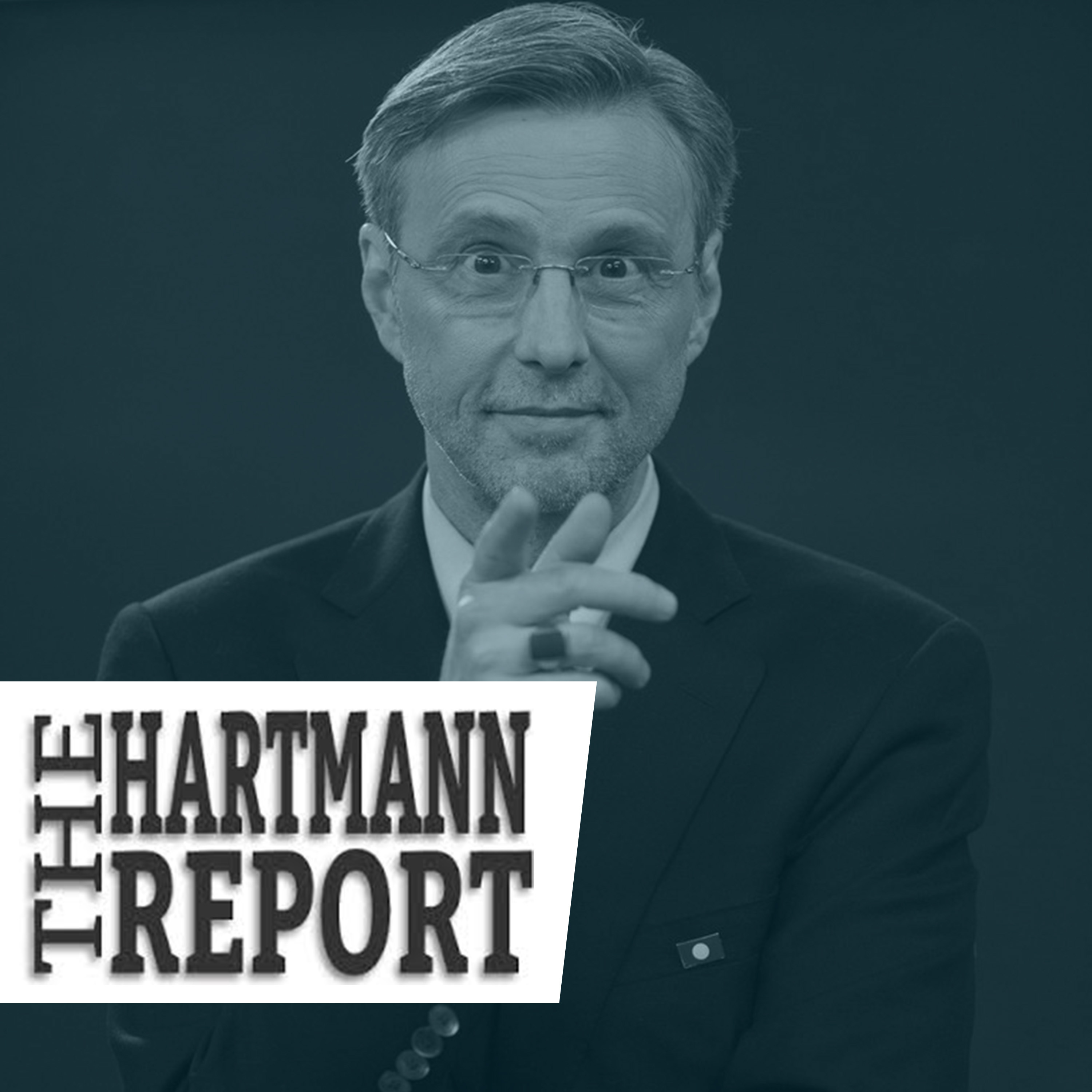
The Hartmann Report
Thom Hartmann
The Glenn Show
Glenn Loury
#RolandMartinUnfiltered
Roland S. Martin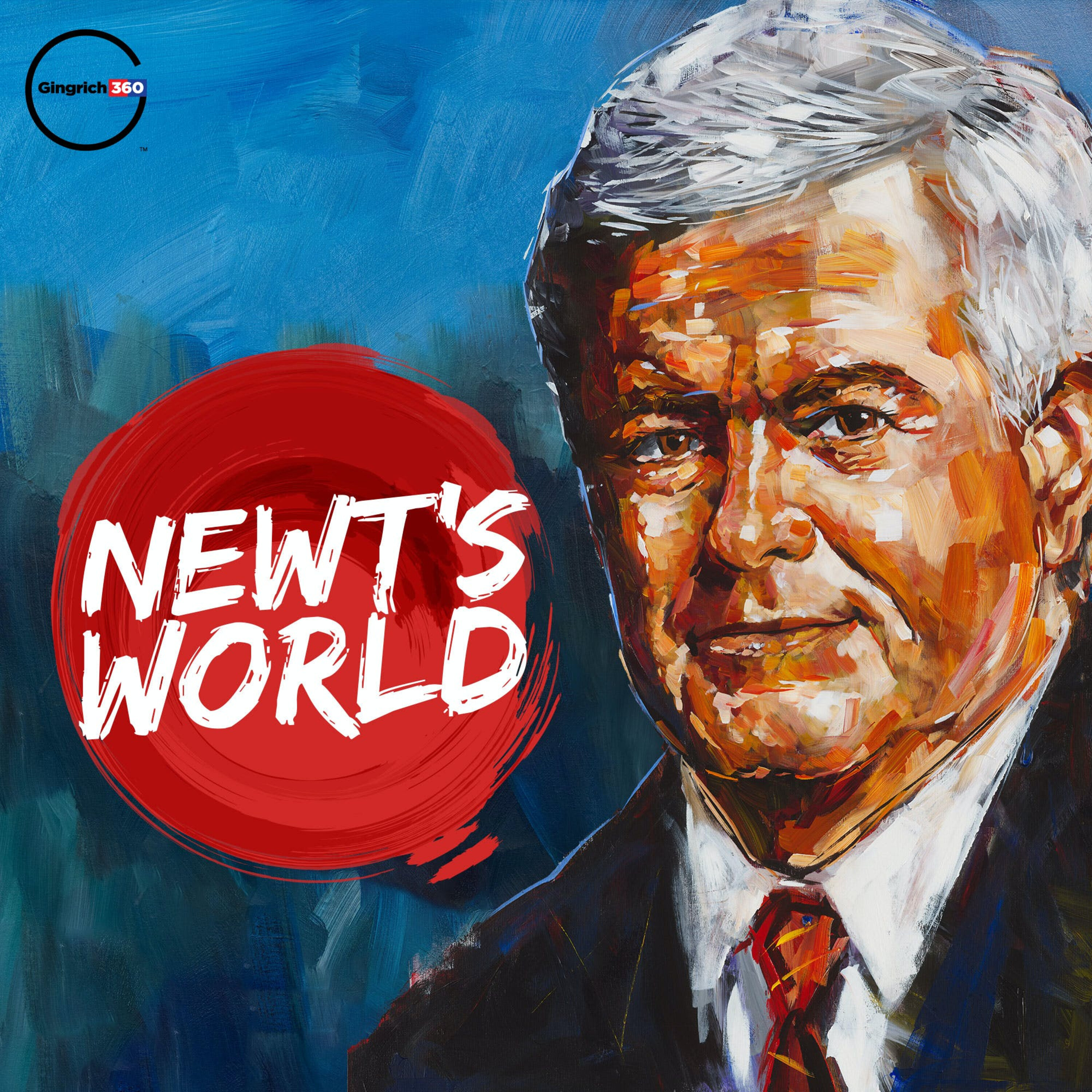
Newt's World
Gingrich 360
Pod Save America
Crooked Media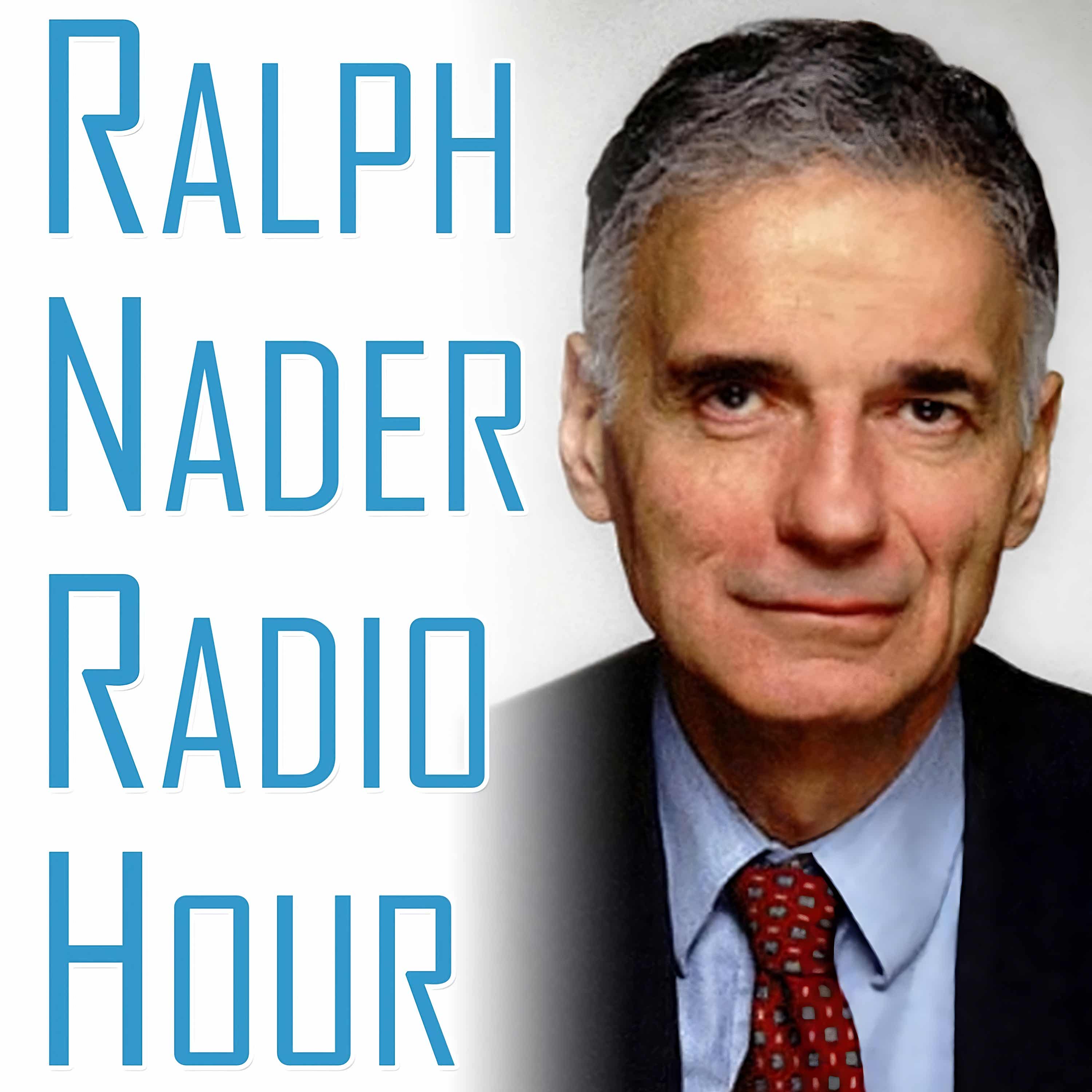
Ralph Nader Radio Hour
Ralph Nader
Bannon`s War Room
WarRoom.org
Bannon’s War Room
dan fleuette
The Young Turks
TYT Network
The Beat with Ari Melber
Ari Melber, MS NOW
The Damage Report with John Iadarola
TYT Network
The Majority Report with Sam Seder
Sam Seder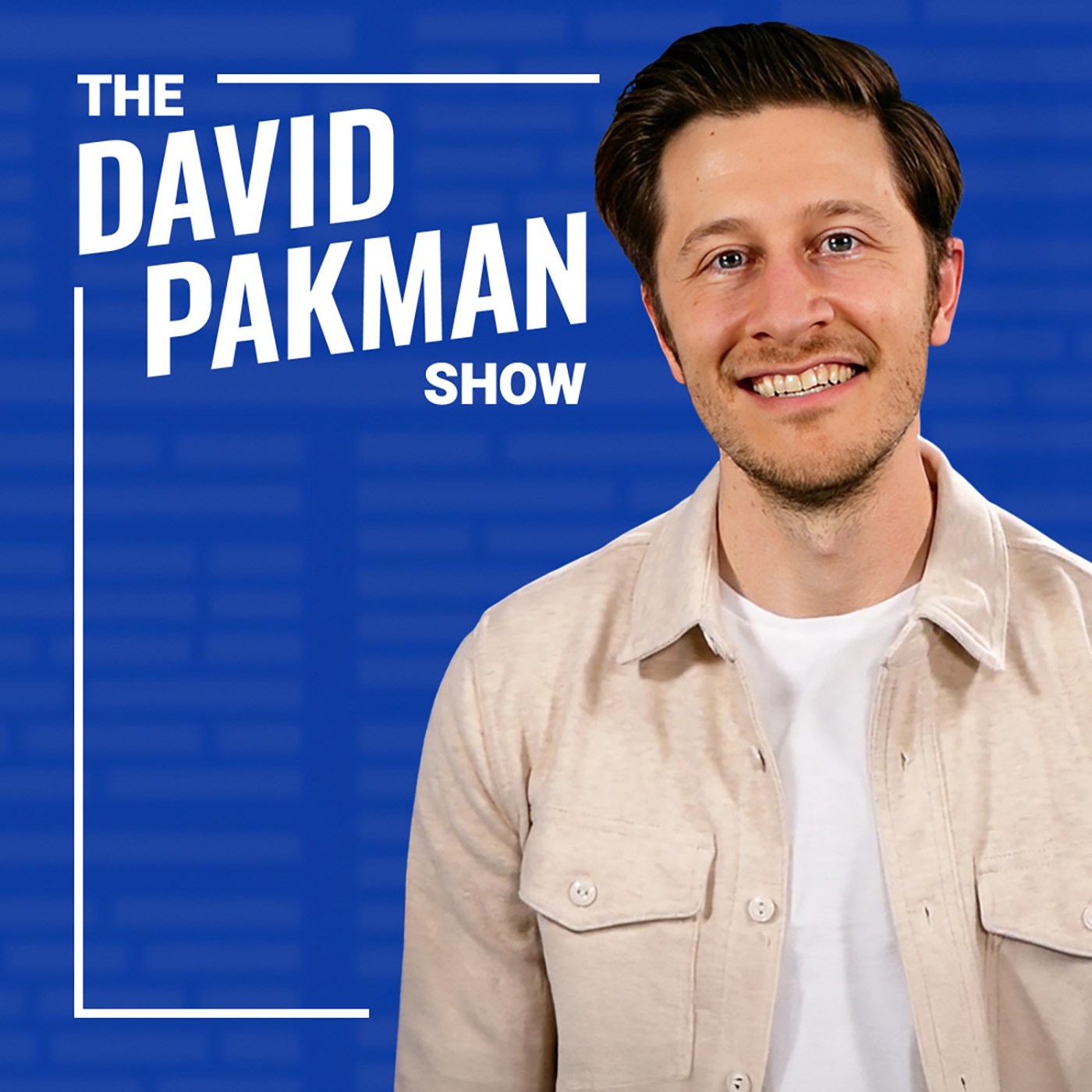
The David Pakman Show
David PakmanGet A Grip with Kendall Reusing
Kendall Reusing
Ultimately with R.C. Sproul
Ligonier Ministries
Grace to You: Radio Podcast
John MacArthur
The Briefing with Albert Mohler
R. Albert Mohler, Jr.
StarTalk Radio
Neil deGrasse Tyson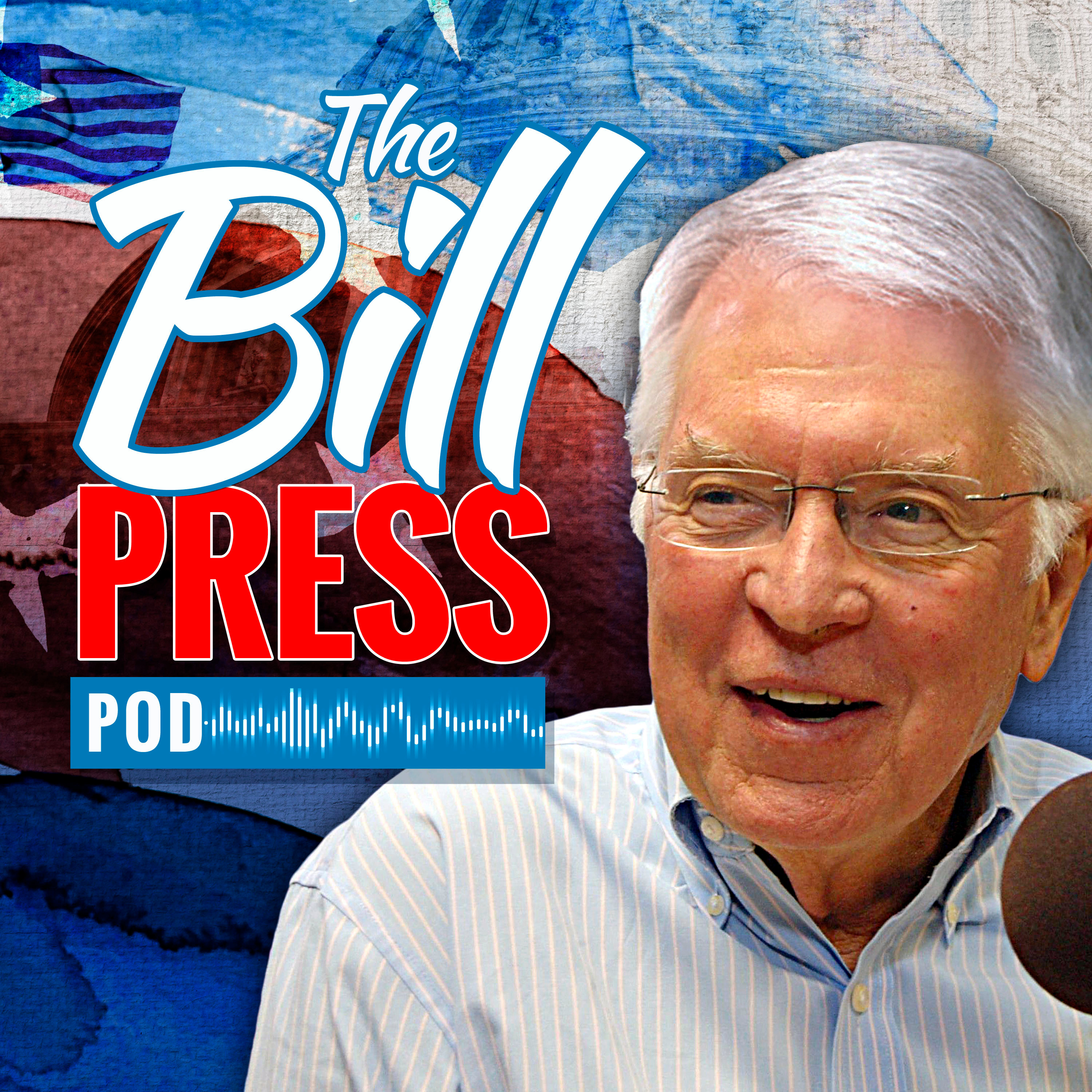
The Bill Press Pod
BP Pods
Ask Pastor John
Desiring God
The Weekly Show with Jon Stewart
Comedy Central
Ask Ligonier
Ligonier Ministries
Lost Debate
The Branch
Coffee-Time-Again
Dale Hutchinson
5 Minutes in Church History with Stephen Nichols
Ligonier Ministries
The Ezra Klein Show
New York Times Opinion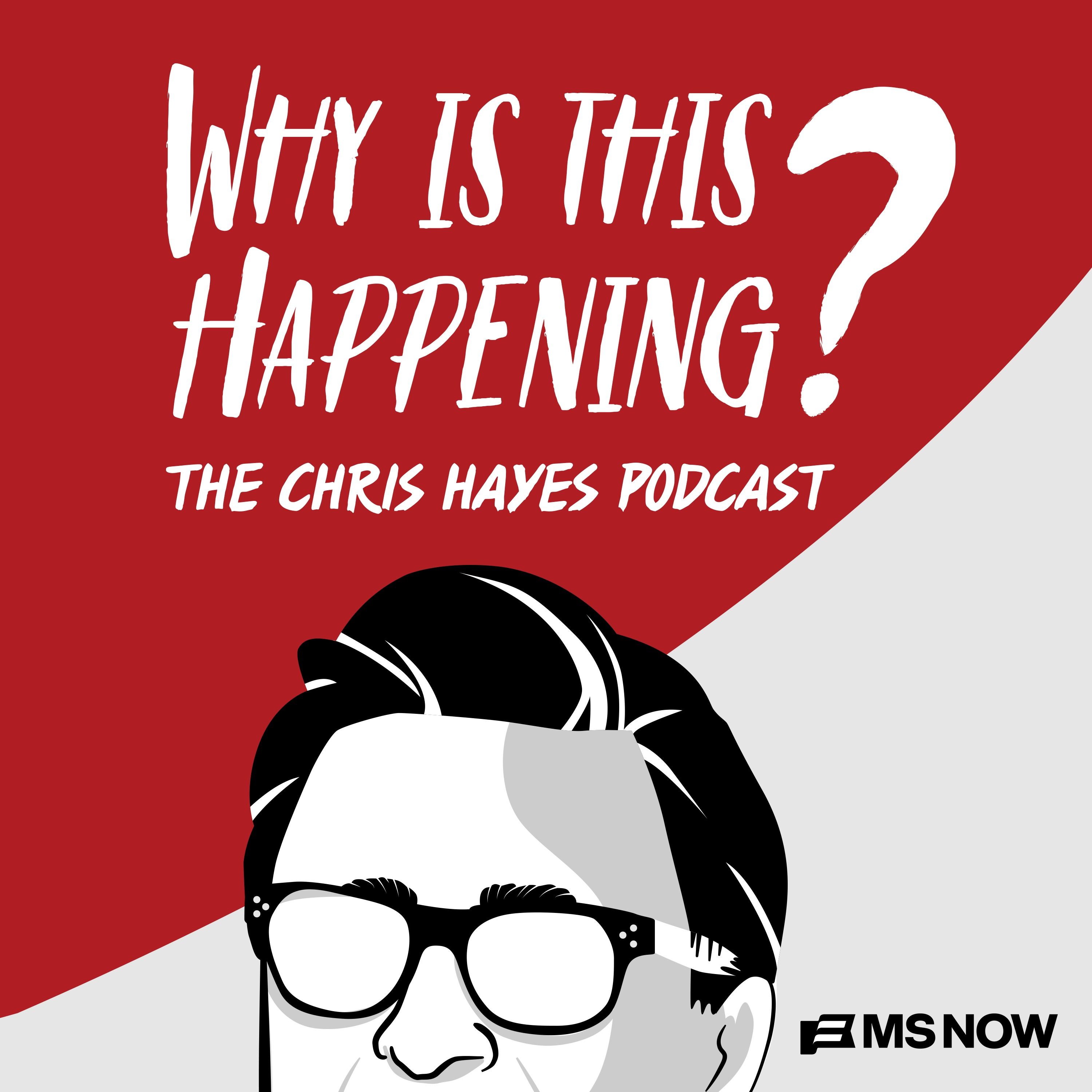
Why Is This Happening? The Chris Hayes Podcast
MS NOW, Chris Hayes
Changed By Grace
PodPoint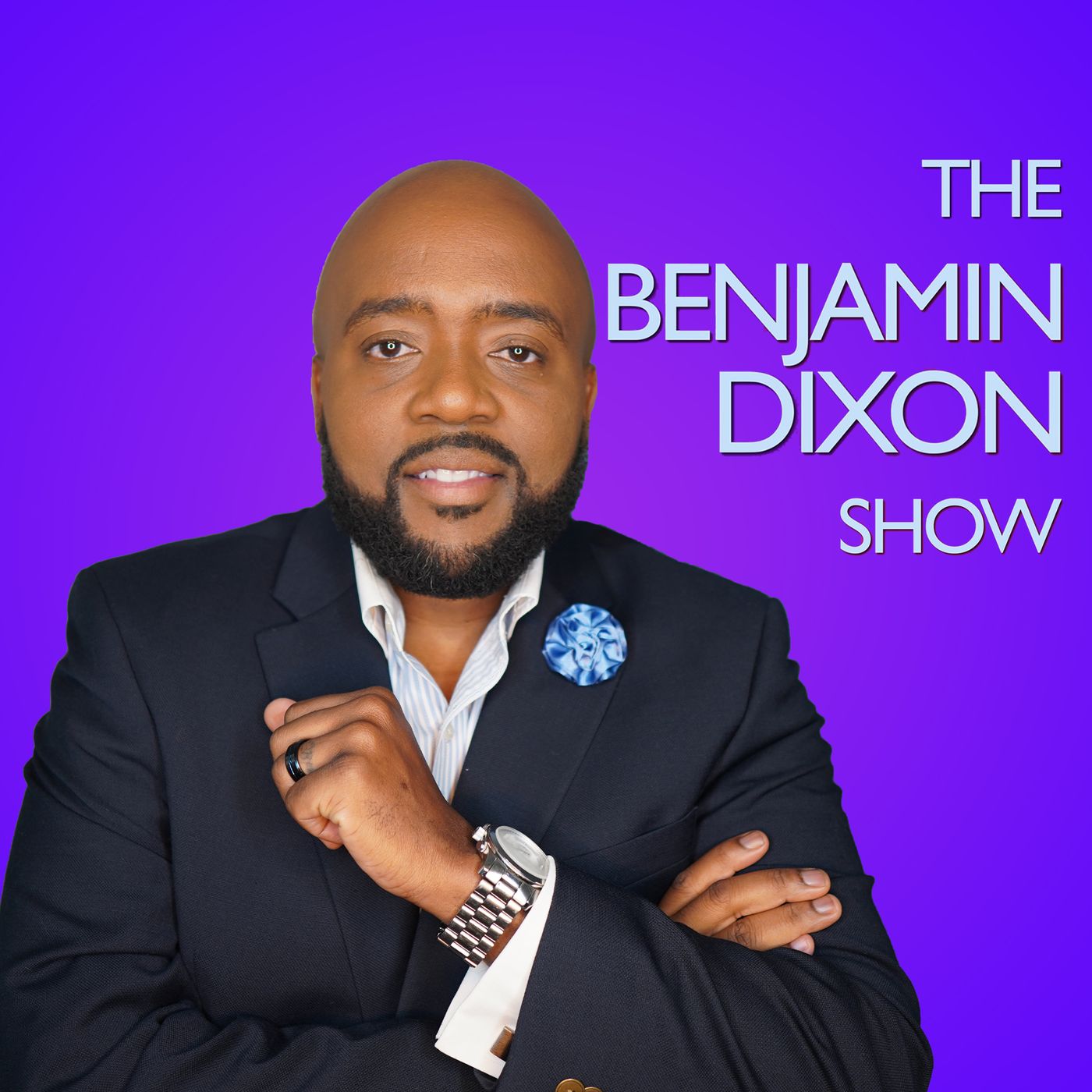
The Benjamin Dixon Show
The Benjamin Dixon Show
Thinking in Public with Albert Mohler
R. Albert Mohler, Jr.
Who Killed JFK?
iHeartPodcastsThe MacArthur Center Podcast
The Master's Seminary
Jean Jacques Machado : No Gi Required
Jay Zeballos
Trauma Bonding
Jamie Kilstein
This Day in History
The HISTORY Channel
The Ben Shapiro Show
The Daily Wire
The Sean Hannity Show
Sean Hannity
Breaking Points with Krystal and Saagar
iHeartPodcasts
The Kyle Kulinski Show
Kyle Kulinski